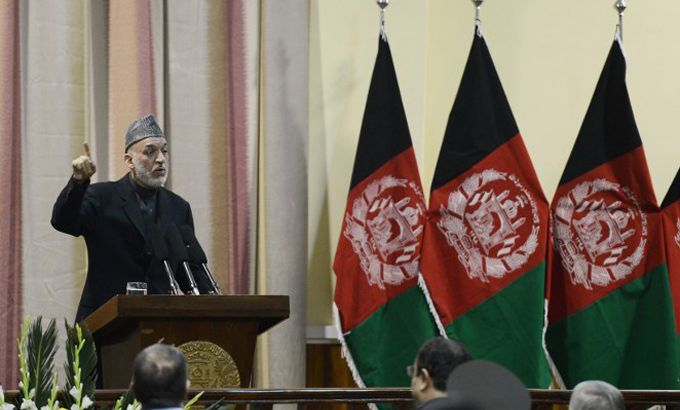NATO vows to respect Karzai’s air-raid ban
Afghan president set to issue decree to prevent local forces from calling for foreign raids in residential areas.

NATO says it will work with Afghanistan’s defence leadership to implement a ban by President Hamid Karzai on Afghan forces using NATO air attacks in residential areas.
|
“We got the broad guidance from the president, and we will work out the details in the coming days“ – US General Joseph Dunford |
Sunday’s announcement by US General Joseph Dunford, the new NATO commander in Afghanistan, came a day after Karzai said he would issue a decree banning Afghan security forces from requesting NATO air strikes on “Afghan homes or villages”.
On Wednesday, a NATO air attack has killed 10 Afghan civilians, mostly women and children, in a raid on a suspected Taliban hideout in eastern Afghanistan.
In his first meeting with reporters since assuming command of NATO’s International Security Assistance Force (ISAF) a week ago, General Dunford said he would work out the details of how to implement Karzai’s order.
“We got the broad guidance from the president, and we will work out the details in the coming days,” he said at the heavily guarded ISAF headquarters, several hundred metres from Karzai’s palace.
‘Tactical directive’
Karzai’s decree was expected to be issued on Sunday and paralleled a “tactical directive” issued by ISAF in June last year, which forbade international troops from using air strikes against fighters “within civilian dwellings”, Dunford said.
That directive was issued days after 18 civilians were killed during a NATO air strike in eastern Logar province.
A meeting was planned between Dunford; Bismillah Khan Mohammadi, Afghan defence minister; and General Sher Mohammad Karimi, Afghan chief of army staff, later on Sunday to discuss the ban’s “technical aspects”, he said.
NATO air raids that cause civilian casualties have become a significant stress point in relations between Karzai and his international backers as the US and Afghanistan enter negotiations about the size of the American presence once most international troops depart by the end of next year.
The limiting of air raids will place further pressure on the 352,000-strong Afghan security forces as they assume security control from international forces.
Foreign air power is crucial for Afghan forces in areas near Pakistan’s border, like Kunar and Nuristan, which are covered with forests and rough terrain, making ground operations difficult.